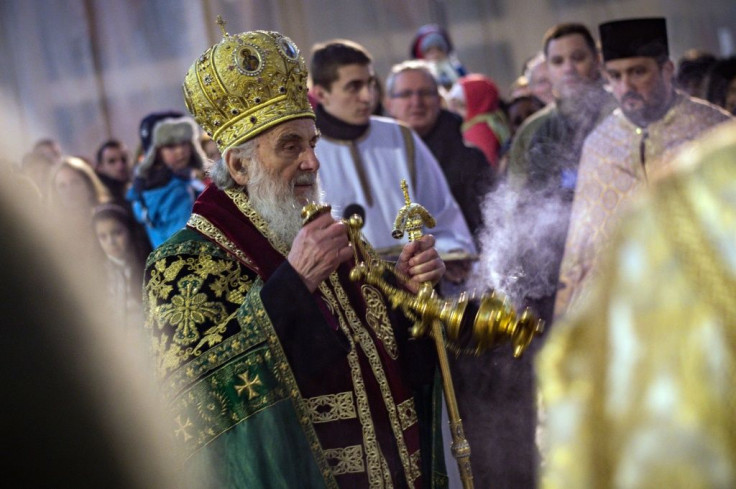Serbian Orthodox Patriarch Dies Of Covid-19
Patriarch Irinej, the head of the Serbian Orthodox Church, died of coronavirus on Friday, three weeks after his unofficial second-in-command also succumbed to Covid-19, the church said.
The 90-year-old cleric was hospitalised on November 4 after testing positive and was immediately admitted to a military hospital in Belgrade.
While church said the patriarch was "without symptoms" and in "excellent" condition, he developed a high fever and his health quickly deteriorated due to chronic heart issues.
"We will inform the public on other details about the funeral of his Holiness shortly", the church statement said.
Coronavirus has dealt a blow to the leadership of the Serbian Orthodox Church, as powerful bishop Amfilohije, its leader in neighbouring Montenegro, also died after battling coronavirus in late October.
Irinej was last seen in public three days prior to his hospitalisation, when he led his unofficial second-in-command's funeral service in Podgorica.
Thousands attended the ceremony without social distancing, and most clerics, including the patriarch did not wear masks.
The gathering caused outrage from health officials in Adriatic nations who linked it to an unprecedented surge in new cases.
Born Miroslav Gavrilovic in Vidova, a tiny village in central Serbia, Irinej served as bishop of Nis diocese before being elected 45th head of the Serbian Orthodox church following death of highly revered patriarch Pavle in 2010.
The vast majority of Serbia's population of seven million identify themselves as Orthodox Christians, and the church is a major force in the Balkan country.

"It was an honour to know you. The likes of you never go away," Serbian President Aleksandar Vucic wrote on Instagram.
Despite the influence of the church in the region, Irinej never reached the level of popularity his predecessor enjoyed.
In Orthodox circles, he was considered a moderate, signalling an openness to improving relations with the Catholic Church that have been strained for centuries. He even raised the possibility of a papal visit.
On the political side, Irinej took an active role in campaigning against the independence Serbia's former province Kosovo declared in 2008.
The predominantly ethnic Albanian territory is home to important SPC monasteries and churches, and Irinej even threatened violence if holy sites were recognised as belongings of the breakaway territory.
"If force is deployed" to deprive Serbia of its cultural and historical heritage, "we will do all we can to defend them, by peaceful means or by force," he said on state television in 2015.
Irinej was vocal with his anti-abortion views, and drew controversy in 2017 when he told local newspaper that it was "a woman's duty to give birth in order to regenerate the nation".
In 2014, Irinej condemned the Belgrade Pride, the annual LGBT march that often caused tensions in Serbia, denouncing it as "immoral" and "imposed by the homosexual lobby and their mentors from Western Europe".
mbs/ach
© Copyright AFP 2024. All rights reserved.





















